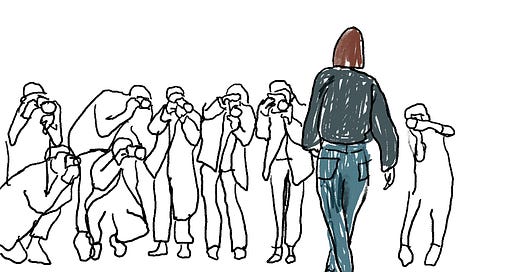How People Create: Heather Cocks and Jessica Morgan
Or, How Writing a Brilliant Blog Can Turn Into Writing Best-Selling Books
Have you ever read someone’s writing and then felt like you knew them personally? Like, ‘Oh these are my friends Heather and Jessica now, even though I’ve never met them and they have no idea who I am and I’m just some rando who reads their blog.’
Here’s another question for you: How many blogs that were founded in 2004 are STILL AROUND? AND GOOD?
I ha…
Keep reading with a 7-day free trial
Subscribe to INSPIRED to keep reading this post and get 7 days of free access to the full post archives.





